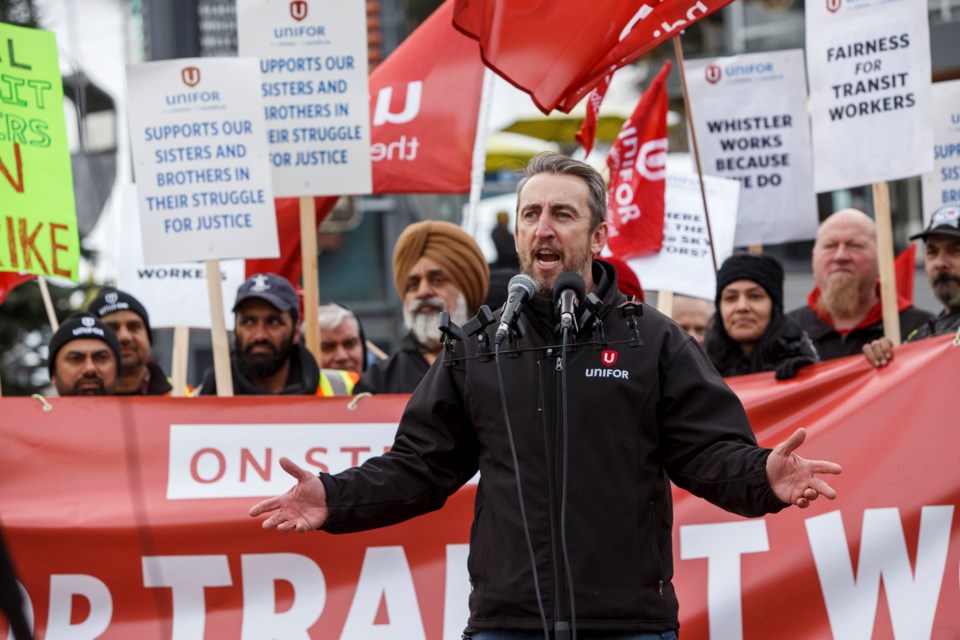It’s been about 30 years since I had the inclination to move to Whistler. I’ve seen Whistler evolve from no transit, to unreliable transit, to quite popular and well-regarded transit. These days in general the local transit system seems to yield few complaints and high ridership (Squamish and Pemberton to Whistler excepted). The transit fares are reasonable, subsidized by government and parking revenues from Day Lots 1-5. So how are the strike, clogged roads, workers commuting, construction permits, and sustainability all connected? Bear with me...
Why the strike? The usual story—wages and benefits. Should drivers here expect the same wages and benefits as those in Vancouver and Victoria? All of these places are frighteningly expensive to live. Inflation is rampant. Food and fuel prices are way up. Every single thing costs more recently. These drivers and support staff have been providing an essential service daily through the uncertainty of COVID for the last two years, plus the usual issues: drunken idiots, snowstorms, tourist questions, tourist drivers, the Nesters parking lot, extreme congestion, and more. Add to that the responsibility of delivering passengers safely to their destination while not running over unleashed dogs of irresponsible dog owners.
Why packed roads? Yes, it’s getting worse and not just because of a few ill-timed snowstorms. The deluge of daily commuters from Pemberton and Squamish coming to town between 8 and 9 a.m. and returning later in the day are just one part of it. The ever-increasing flow of construction permits provided by the RMOW means more contractors, material trucks, and trades on the roads day in, day out—to work, down to Function, back to work, out to lunch, back to work, to another site, etc, etc. Vail Resorts’ love of selling Epic season passes combined with high hotel rates means more and more vehicles on the road on weekends and holidays. This year it’s worse than ever.
So what about those bus drivers? We’re never going to get cars and trucks off of the road if we (i.e. contracts provided by BC Transit and local funding) don’t make the transit system attractive—for riders and for operators. So yes, pay them better, give them benefits, or watch them find other, more lucrative and less stressful jobs. Fast fact: we need the drivers more than they need us. Solutions? Raise bus fare if necessary—it’s been a while. Supplement the contract fees to Pacific Western Transit (PWT). Audit PWT [Whistler Transit’s parent company] to see where the funds are going. BC Transit has a huge role to play getting PWT and Unifor back to bargaining. There are enough headwinds to trying to run small businesses in this brutal pandemic environment. PWT managers and Unifor members—are you there? Press your negotiators to get back at discussions now. Don’t drag the whole resort down while you posture to enhance your bargaining position. Does this remind anyone of the unintended consequences of the trucker protests?
While the strike drags on, tourists aren’t getting the free loop bus service they were promised by Whistler Inc. (that’s us). Employees can’t get to work and we know how short staffed everyone is already. Clearly we are destined for more and more cars on the road despite all of that talk and effort towards our “sustainable” future.
I’ve noticed the convergence of a number of key themes for Whistler’s future featured in very recent Pique articles—about exceptional growth, transportation issues/clogged roads, employee shortages, lack of housing, brain drain, and mental health due to COVID—and they ALL are exacerbated by a transit strike!
This is one of those shining moments where the many committed, long-term locals who helped build this town into a major resort/cash cow of epic tax contributions to government are looking for a fast return on our investment. That means PWT and Unifor in active discussions with support from BC Transit. Yet the silence is deafening. It is all connected and we deserve proactive solutions—please restart negotiations now!




